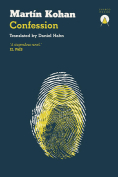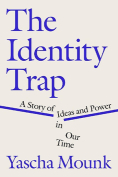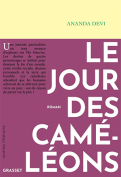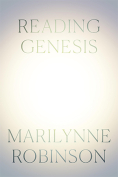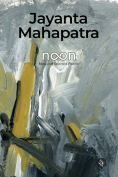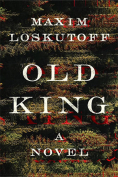The Identity Trap: A Story of Ideas and Power in Our Time by Yascha Mounk
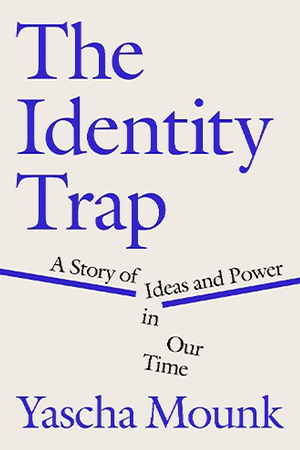 New York. Penguin Press. 2023. 416 pages.
New York. Penguin Press. 2023. 416 pages.
German American political scientist and founder of the publication Persuasion, Yascha Mounk’s steady rise to fame and presence in public debate was accelerated in 2022 when President Obama included his fourth book as one of his summer reading picks. Mounk has now published his fifth, The Identity Trap, which is perhaps his most urgent one yet.
It is not new to voice criticism of what is frequently aggregated under the label “wokeism.” In recent years, however, there has been a rise in book-length scrutiny of this ideology, much of it originating from the political left. The Identity Trap is a noteworthy addition to this growing tradition. Like many of the other authors, Mounk too struggles with the term “wokeism,” which has amassed a negative connotation for many. He instead suggests the label “identity syntheses,” which his book argues is a trap both for individuals and society as a whole.
Importantly, Mounk stresses, wokeism does not exhaust itself in insisting that racial inequalities and racism are still pressing issues, or that past racial, gender, or sexual identity–based injustices have lasting structural and cultural consequences today. Rather, it transgresses this legitimate assessment by making the following claims: (1) Above all else, group identities like race, gender, and sexual orientation are pivotal to directing and interpreting human action, such that individuals from different identity groups can never truly understand each other (a position called “standpoint theory”); (2) “Universal values and neutral rules merely serve to obscure the ways in which privileged groups dominate those that are marginalized.” So, to build a just world, both interpersonal treatment and public policy must “depend on the identity group to which you belong.”
In making these additional claims, wokeism explicitly diverges from both the liberal tradition of Western democracies (“liberal” in the traditional philosophical sense, centered around universalism before the law) and also from the ideals of much of the civil rights movement, certainly from those of Martin Luther King Jr.
The Identity Trap makes at least two significant contributions to the current debate. The first is clarifying the intellectual genesis of wokeism. Here, Mounk underlines that some proponents of the original ideologies that have fed into the identity synthesis—notably postmodernism, postcolonialism, and critical race theory—would be or have been critical of how some of their ideas were adapted. The second is advancing a clear and philosophically liberal critique of wokeism that people in the vicinity of the identity synthesis might be more amenable to than some of the more combative cases put forward previously. Unlike commentators like John McWhorter in Woke Racism, or Vivek Ramaswamy in Woke, Inc., Mounk abstains from emphasizing criticism along psychological, economic, or power motivations of the individual adherer.
Throughout his book, Mounk’s fundamental point of objection is instead directed toward the claim that racism—and hatred of other immutable identity markers—can never be overcome. He fears that a worldview insisting on the inescapable centrality of race, gender, and sexuality is bound not only to make us less happy and less free but also to hurt the very cause that the identity syntheses champions. Mounk argues that it was precisely the vehement and uncompromising insistence on human liberties’ universal applicability to all races, genders, and sexualities, by the civil rights movement, by women and gay rights activists, that made the last century’s enormous improvements possible. Celebrating this irrefutable progress does not negate the persistence of injustices along the same fault lines. But diminishing or denying it would be counterproductive, historically wrong, and itself an injustice to past lives that suffered unfathomable cruelties.
Mounk proves unrelenting in his conviction that society is better than the proponents of the identity synthesis claim it is or could be. In remembering that significant progress is possible, and continuing the unwavering defense of precisely what the identity synthesis breaks with—universal liberal principles—we stand to make further progress still. But in order to come together and devise strategies that have both impact and wide societal backing, we need to be able to freely exchange our views. Free speech, however, has been under threat from both ends of the political spectrum. Woke cancel culture has perpetrated a number of injustices, contributed to societal polarization, and limited our ability to improve on complex issues including race, gender, and sexuality-based discrimination. Claiming the moral high ground and pushing for supposedly obvious solutions to complex problems while closing debate on alternative means under threat of slander is not a promising strategy for a free and diverse society.
Mounk’s book is emotionally difficult to read at times, particularly when following examples of well-intentioned woke policy or principles having the opposite effect—progressive school segregation, racial preference in access to first Covid vaccines, or a young student getting shamed and accused of cultural appropriation because she was deemed not “Asian enough.” He discusses rational flaws in premises as well as reasons for why such action is morally wrong. By way of example, he shows how explicit racial preference can have negative effects even on the minority it aims to support.
It remains to be hoped that The Identity Trap will find its way into widely diverse sets of hands, enabling both the college freshman and the CEO to openly back any truly liberal position. It marks an important contribution to the understanding of wokeism as well as to mounting the liberal defense against it, illuminating many of its threats—not the least of which is being the push to Donald Trump’s pull.
Felix Haas
Zurich




